14 Dec2020
By Pamela Carroll
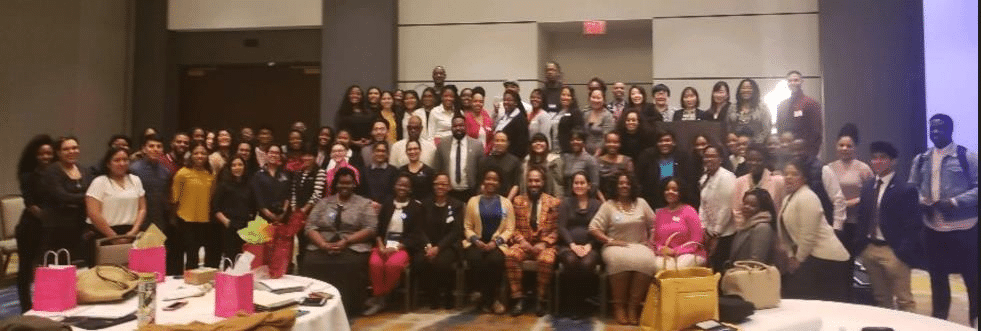
Did you know that over 1,000 traditionally underrepresented doctoral students have benefitted from the AACTE Holmes Scholars Program? Through networking, collaboration, mentoring, leadership opportunities, and research activities, the program provides high-achieving minority students with rich professional development. In fact, you probably know a former scholar, as many are now in tenured faculty and leadership positions at institutions across the United States.
Educator preparation programs (EPPs) are keenly focused on developing strategies to advance the field of education, close the equity gap, and make a more diverse teacher workforce a reality, and the Holmes Scholar Program is an essential component to achieving those goals. To promote diversity of the education profession and to prepare educators who can serve diverse learners, the program provides EEPs with the opportunity to attract students from historically underrepresented communities, increase the retention and graduation rates of doctoral students of color, and strengthen the institution’s role as a leader in supporting diversity.
08 Dec2020
By Jacqueline Rodriguez, Jane E. West, Jacqueline E. King, Ph.D. and Ward Cummings
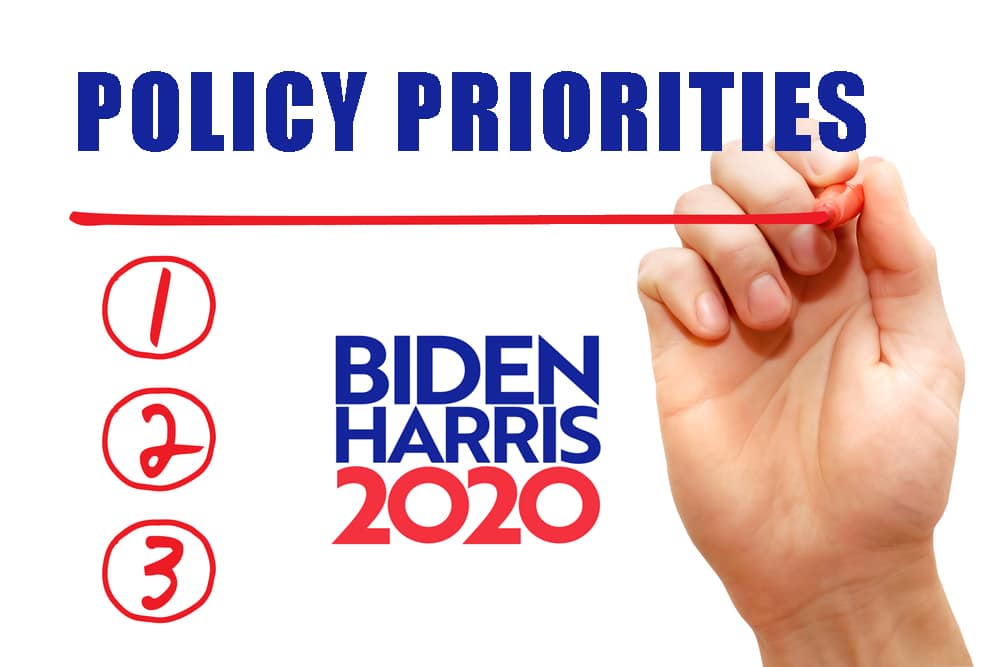 The nation’s transition to the 46th presidential administration are underway. AACTE provided the Biden-Harris Administration’s Education Transition Team with its policy priorities for the coming year. Much of AACTE’s priorities stem from its advocacy throughout the year to increase the federal investment in education in PK-20, with a specific focus on recruiting and sustaining candidates in its education preparation programs.
The nation’s transition to the 46th presidential administration are underway. AACTE provided the Biden-Harris Administration’s Education Transition Team with its policy priorities for the coming year. Much of AACTE’s priorities stem from its advocacy throughout the year to increase the federal investment in education in PK-20, with a specific focus on recruiting and sustaining candidates in its education preparation programs.
As a result of the COVID-19 pandemic, educator preparation stands at a dangerous crossroad. The college and university programs that prepare our teachers, principals, school counselors, and other essential education professionals are experiencing a debilitating wave of closures and faculty layoffs.
04 Dec2020
By Jacob Easley II
This article originally appeared in Diverse Issues in Higher Education and is reprinted with permission.
 The 1787 U.S. Constitution was ratified to establish justice, liberty, and prosperity, but not for all Americans. Like the Constitution, early American educational practices were based on a system of whiteness and elitism. Justice and prosperity for those who comprise marginalized groups have remained largely unfulfilled. We know for certain that we are a pluralistic society. No one group has singularly built this nation, secured its borders, nor defended its values. The plurality of our nation is our strength. As educators, particularly who prepare America’s future teachers, we must double down, now more than ever, on what Horace Mann said, “Education, beyond all other devices of human origin, is the great equalizer of the conditions of men, the balance wheel of the social machinery.”
The 1787 U.S. Constitution was ratified to establish justice, liberty, and prosperity, but not for all Americans. Like the Constitution, early American educational practices were based on a system of whiteness and elitism. Justice and prosperity for those who comprise marginalized groups have remained largely unfulfilled. We know for certain that we are a pluralistic society. No one group has singularly built this nation, secured its borders, nor defended its values. The plurality of our nation is our strength. As educators, particularly who prepare America’s future teachers, we must double down, now more than ever, on what Horace Mann said, “Education, beyond all other devices of human origin, is the great equalizer of the conditions of men, the balance wheel of the social machinery.”
America has yet to become an equal society, and these societal ills create the need for scholar activism embedded in Critical Race Theory (CRT), which historically documents and names the atrocities carried out in this country in the name of freedom, liberty, and democracy. America’s struggle to uphold the Constitution for all its citizens makes it necessary to examine the structural oppression that encumbers the United State from fully living up to its democratic ideals. Through CRT, scholars across higher education have researched racial inequality that emerged from the social, economic, and legal differences created between races to maintain elite, white interests in this country. If our national laws and practices are to ensure justice and equity, then educators have a great deal of work to do in ensuring the American ideals we teach youth to value in school are a reality for all.
01 Dec2020
By Katrina Norfleet

In a recent interview with AACTE, Gaëtane Jean-Marie, dean and professor of educational leadership at the College of Education, Rowan University, discusses the importance of preparing teacher candidates to understand the cultural background of students in moving toward a more humanistic approach to see the learner as an individual.
Why is it important to prepare teacher candidates in culturally responsive classroom management?
It is to really realize the belief that all children can learn. A while back when I was teaching as a faculty member, I remember DuFour’s comment that stayed and resonates with me; it is that, “if we truly believe that all children can learn, what then do we do when they can’t, when they are not learning?” It makes me ask: What is our responsibility to help bridge the cultural gap between teachers and students? As we continue to help diversify the teaching profession, it is still predominantly white teachers who are the educators, so how do we prepare them? What’s the responsibility of ensuring that our teacher candidates can really meet the needs of all learners? Given the demographic shift, where more of our Black and Brown children are in schools and will be taught by teachers who are not of the same race. If we are recognizing that it starts with the belief that all children can learn, then our belief must also align with our practices as we continue to work hard to diversify the profession. We espouse the belief that all children can learn; now let’s realize that dream.
19 Nov2020
By Adriana Labarta
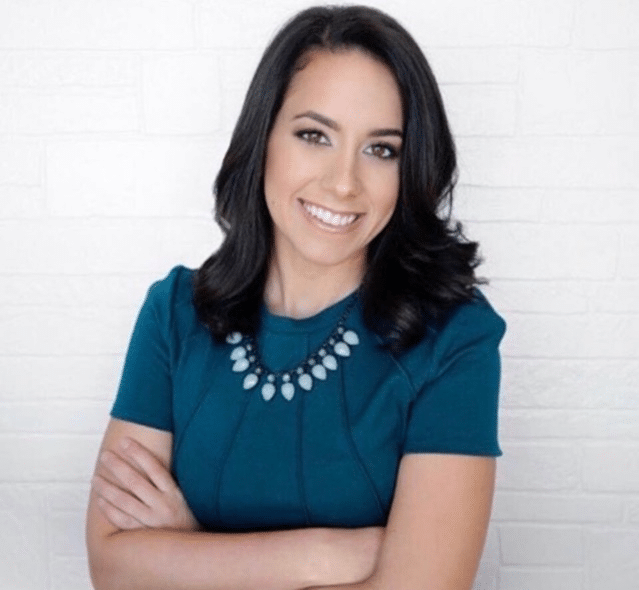 Amid the COVID-19 pandemic, institutions of higher education have experienced various challenges, including transitions to online learning and adaptations to the delivery of campus services. Students, faculty, and staff alike have navigated feelings of anxiety and stress amid these uncertain times. Further, students that identify as Black, Indigenous, and People of Color (BIPOC) are navigating two pandemics: COVID-19 and systemic racism. This reality presents an important question: How are university systems working to address racial injustice and support BIPOC students?
Amid the COVID-19 pandemic, institutions of higher education have experienced various challenges, including transitions to online learning and adaptations to the delivery of campus services. Students, faculty, and staff alike have navigated feelings of anxiety and stress amid these uncertain times. Further, students that identify as Black, Indigenous, and People of Color (BIPOC) are navigating two pandemics: COVID-19 and systemic racism. This reality presents an important question: How are university systems working to address racial injustice and support BIPOC students?
On Monday November 2, 2020, the College of Education (COE) Student Achievement Council (SAC) at Florida Atlantic University (FAU) collaborated with AACTE’s Holmes Scholars Program and the COE Diversity Committee to host a student outreach event with the purpose of addressing the aforementioned question. The three-part virtual presentation consisted of a welcome from COE Dean Stephen Silverman, a panel discussion with FAU’s Holmes Scholars, and an open discussion with all attendees of the event.
17 Nov2020
By Deen Lango

This article originally appeared in the USBE Information Technology magazine and is reprinted with permission.
Although minorities make up more than half of the student population in public schools, people of color make up about 20 percent of teachers. More than 70 percent of the total number of teachers are female. With support from the Education Writers Association, Chandra Thomas Whitfield took a close look at the shortage of Black male teachers in 2019. Nationwide, Whitfield found that only 2 percent of teachers are Black men.
Eleven months after Whitfield’s report, Alabama A&M University launched its Males for Alabama Education initiative to recruit Black male students who have an interest in teaching.
In October 2020, the Males for Alabama Education (M.AL.E.) Initiative announced that the scholarship program is accepting applications again.
Coordinated by the College of Education, Humanities and Behavioral Sciences and its Department of Teacher Education and Leadership, the M.AL.E. Initiative aims to:
16 Nov2020
By Jacqueline E. King, Ph.D.
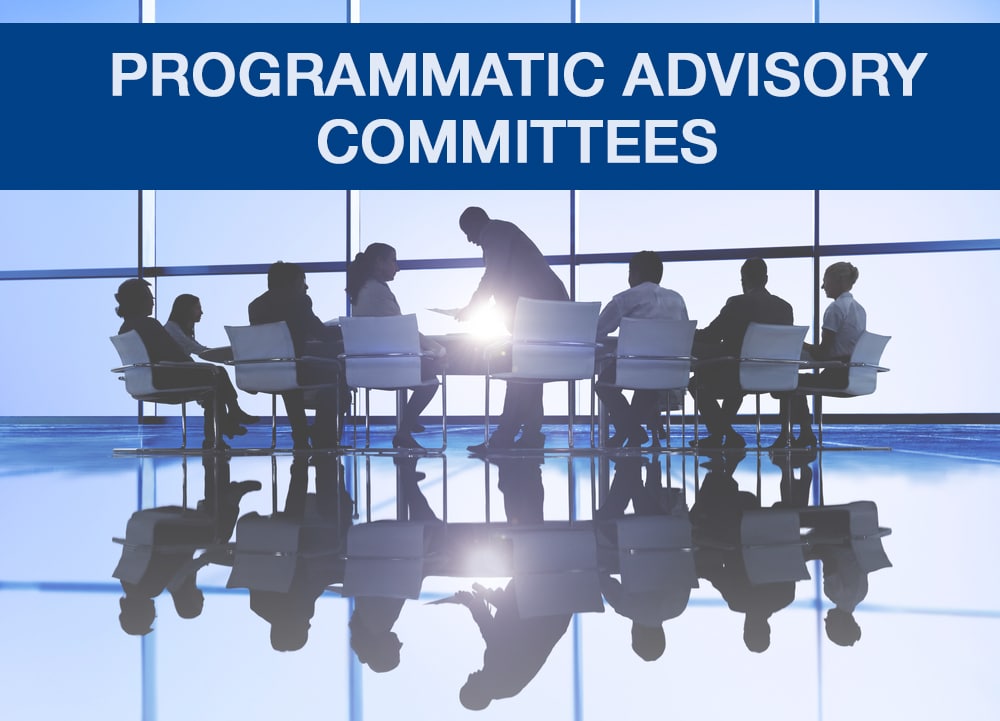
At its September meeting, the AACTE Board of Directors appointed new members to the programmatic advisory committees, including two new committees on Educator Diversity and the Holmes Program. Congratulations to these AACTE members, who will assume these positions on March 1, 2021, and a special thank you to everyone who submitted a nomination for these important volunteer leadership roles.
02 Nov2020
By JTE Insider
This podcast interview features insights from the article “Education Policy and Black Teachers: Perspectives on Race, Policy, and Teacher Diversity” by Terrenda White, Brian Woodward, DaVonna Graham, H. Richard Milner, and Tyrone C. Howard. The article is published in the September/October 2020 of the Journal of Teacher Education. AACTE members have free access to the articles in the JTE online archives—log in with your AACTE profile.
02 Nov2020
By Katrina Norfleet
The University of Michigan’s TeachingWorks is offering a series of free virtual mini-courses for English language arts teacher educators as part of its goal is to create a system for teacher preparation and establish support that will produce skillful beginning teachers who disrupt inequity.
The mini-courses will help build an understanding of critical content in ELA and develop practice-based approaches for teaching that content to novice teachers. This series will support ELA teacher educators to develop K-12 instruction and teacher education that fills immediate needs for children and contributes to building an education that dismantles injustice instead of perpetuating it.
The next course available for registration takes place on December 4, 2020:
02 Nov2020
By Matthew Wales

Themed Leadership During Difficult Times, AACTE’s first session of the 2020 Leadership Academy Series, held on October 14, explored how three institutions have risen to the challenge and taken strides to make lasting policy and programmatic changes related to diversity, equity, and inclusion. To continue the discussion, AACTE has provided panelist Lisa Norton, dean of the College of Education & Health Sciences at Touro University, California and one of the featured panelists, with some additional questions from session attendees. Here is what she had to say:
The Graduate School of Education at Touro University, California recently held a series of informative and courageous conversations regarding what it means for education to live diversity in 2020 and beyond. Can you share some of the insights related to accessibility for all PK-12 students in a remote learning environment?
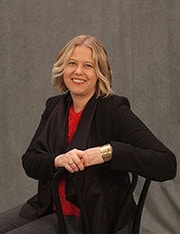 Our current Academic College Instructional Designer and Graduate School of Education faculty member, Dr. Michael Barbour, is internationally known for work on PK-12 remote learning and accessibility. We are lucky to have him to help both our own campus and the local school districts with information related to creating an inclusive online environment. We conducted a webinar series entitled Diversity Now, in which we addressed this and many other topics. We are now in discussions to help the school district with additional support for families. This support includes tutoring and mentoring children in two of the schools and possibly partnering on a large-scale grant effort through the state.
Our current Academic College Instructional Designer and Graduate School of Education faculty member, Dr. Michael Barbour, is internationally known for work on PK-12 remote learning and accessibility. We are lucky to have him to help both our own campus and the local school districts with information related to creating an inclusive online environment. We conducted a webinar series entitled Diversity Now, in which we addressed this and many other topics. We are now in discussions to help the school district with additional support for families. This support includes tutoring and mentoring children in two of the schools and possibly partnering on a large-scale grant effort through the state.
02 Nov2020
By AACTE
On behalf of the Board of Directors of the American Association of Colleges for Teacher Education (AACTE), President and CEO Lynn M. Gangone issued the following statement today urging educators to resist the Trump administration’s attack on critical race theory and other anti-racism work in education:
“In its June 4 statement, the AACTE Board of Directors called educators to take courageous action on race matters in America to address not only recent racial injustices across the nation but also structural racism that has deep, historic roots in our society. Critical race theory represents the scholarly work of educators who provide research evidence and expertise on how the legacy of slavery and inequality in America has unequivocally influenced our American way of life, including our system of education, and on effective ways to dismantle structural racism in American society. It has long been the focus of scholars across many disciplines, which has contributed to the great strides institutions have made in advancing human and civil rights for all Americans.
Banning federal funds to be used for professional development that addresses topics like white privilege, implicit bias, and structural racism, which are examined within critical race theory, is a denial of the historic realities of our country, and is an assault on the strategic gains institutions of higher education and educator preparation programs have made to enlighten students and affect change that promotes racial and social justice for all. Educators must resist any setbacks to the many years of research and activism scholars have made to progress our nation into a society that values the lives of all human beings.
AACTE and its member institutions are committed to revolutionizing education by upholding high standards in the preparation of future teachers through inclusive curriculum and evidence-based instructional strategies, modeling, and advocacy that dismantle racial oppression. AACTE members are actively working to diversify the teaching profession, address the teacher shortage, redesign curricula that reflects the needs of 21st century learners, advocate for policies that fund student teachers of color, and build social justice partnerships for strengthening the education community—all in a concerted effort to advance diversity, equity, and inclusion in PK-20 education. Critical race theory is at the foundation of this vital work. AACTE calls on educators and the educator preparation community to stay the course and to actively support the work of critical race theorists and other anti-racism efforts for building a more racially just society.
###
AACTE: The Leading Voice on Educator Preparation
The American Association of Colleges for Teacher Education is a national alliance of educator preparation programs and partners dedicated to high-quality, evidence-based preparation that assures educators are profession-ready as they enter the classroom. The 700 member institutions include public and private colleges and universities in every state, the District of Columbia, the Virgin Islands and Guam. Through advocacy and capacity building, AACTE promotes innovation and effective practices that strengthen educator preparation. Learn more at aacte.org.
23 Oct2020
By Matthew Wales
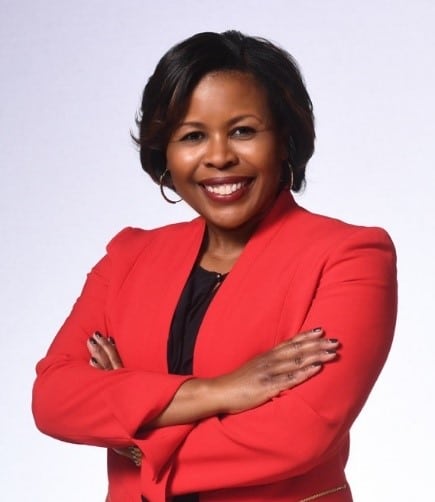 Every year, AACTE typically holds its Leadership Academy as an in-depth, face-to-face, hands-on training for those educators seeking to begin or enhance their roles in academic leadership. Given the current Covid-19 pandemic, AACTE wanted to bring a portion of that experience to its membership, and thus the 2020 Leadership Academy Series was created.
Every year, AACTE typically holds its Leadership Academy as an in-depth, face-to-face, hands-on training for those educators seeking to begin or enhance their roles in academic leadership. Given the current Covid-19 pandemic, AACTE wanted to bring a portion of that experience to its membership, and thus the 2020 Leadership Academy Series was created.
With the theme of Leadership During Difficult Times, the Leadership Academy Series explores topics that are more relevant than ever to our members. The first session of the series, held on October 14, explored how three institutions have risen to the challenge and taken strides to make lasting policy and programmatic changes related to diversity, equity, and inclusion.
Monika Williams Shealey, senior vice president for diversity, equity and inclusion at Rowan University, was one of three distinguished panelists. She recently took time to answer some additional questions from attendees. Here is what she had to say:
23 Oct2020
By JTE
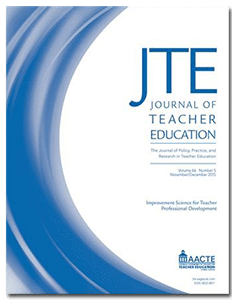 Check out a recent JTE Insider blog interview by the Journal of Teacher Education (JTE) editorial team. This blog is available to the public, and AACTE members have free access to the articles in the JTE online archives—just log in with your AACTE profile.
Check out a recent JTE Insider blog interview by the Journal of Teacher Education (JTE) editorial team. This blog is available to the public, and AACTE members have free access to the articles in the JTE online archives—just log in with your AACTE profile.
This interview features insights on the article entitled, “Rethinking High-Leverage Practices in Justice-Oriented Ways” by Angela Calabrese Barton, Edna Tan, and Daniel J. Birmingham. The article was published in the September/October 2020 issue of the Journal of Teacher Education.
Article Abstract: Justice-oriented teaching must address how classroom-based disciplinary learning is shaped by interactions among local practice and systems of privilege and oppression. Our work advances current scholarship on high-leverage practices [HLPs] by emphasizing the need for teaching practices that restructure power relations in classrooms and their intersections with historicized injustice in local practice as a part of disciplinary learning. Drawing upon a critical justice stance, and long-term collaborative work with middle school teachers and youth, we report on empirically driven insights into patterns-in-practice in teaching which yield insight into both what justice-oriented high-leverage practices may be, and the cross-cutting ideals which undergird them. We discuss the patterns-in-practice and their implications for teaching and learning across subject areas: HLPs that work toward equitable and consequential ends need to be understood in terms of the practice itself and its individual and collective impact on classroom life.
23 Oct2020
By Margaret Caspe
 Decades of research confirm the importance of families, schools, and community working together to launch students on successful trajectories. Yet, teachers attribute lack of preparation as one of their greatest barriers to building relationships with families and their greatest fear for failure. As a result, in January of 2020, the National Association for Family School and Community Engagement (NAFSCE) partnered with AACTE, CAEP, MAEC, the NEA, and selected faculty and state leaders to form the Pre-Service Family Engagement Consortium to enhance how educators are prepared to engage families and communities.
Decades of research confirm the importance of families, schools, and community working together to launch students on successful trajectories. Yet, teachers attribute lack of preparation as one of their greatest barriers to building relationships with families and their greatest fear for failure. As a result, in January of 2020, the National Association for Family School and Community Engagement (NAFSCE) partnered with AACTE, CAEP, MAEC, the NEA, and selected faculty and state leaders to form the Pre-Service Family Engagement Consortium to enhance how educators are prepared to engage families and communities.
22 Oct2020
By Andre ChenFeng
“We are more than test scores.” That was the refrain I heard from my social sciences colleagues in the teachers’ lounge protesting our school’s focus on standardized tests. The middle school was located in a poverty-impacted community with over 95% of students of color. In 2009, I was finishing my fifth-year teaching and recall asking myself, “Why are the standardized tests such an evil thing? Don’t we need assessments to measure what the students are learning?” (ChenFeng, 2009).
One of the signature education policies in my early career was the No Child Left Behind (NCLB) Act of 2002. Teachers have different opinions of NCLB, but most educators and policy makers would agree that NCLB brought upon a culture of “over-testing and one size fits all mandates” (Duncan, 2015). During the 12 years I taught middle school math in Los Angeles, not once did I examine the intersection of white supremacy and education policy in my own classroom instruction. Overwhelmed by the high-stakes testing environment, and with a roster of 130 students, I was not aware of the impact of federal education policy on my teaching beliefs and instruction. In retrospect, I upheld color-evasive ideology and believed in a pedagogy that promoted the myth of meritocracy (Bonilla-Silva, 2017 as cited in Diem & Welton, 2020). In other words, I did not consider how race and racism shows up in the classroom or the ways I was complicit in perpetuating the false notion of pulling ourselves up by the bootstraps.








 The nation’s transition to the 46th presidential administration are underway. AACTE provided the Biden-Harris Administration’s Education Transition Team with its policy priorities for the coming year. Much of AACTE’s priorities stem from its advocacy throughout the year to increase the federal investment in education in PK-20, with a specific focus on recruiting and sustaining candidates in its education preparation programs.
The nation’s transition to the 46th presidential administration are underway. AACTE provided the Biden-Harris Administration’s Education Transition Team with its policy priorities for the coming year. Much of AACTE’s priorities stem from its advocacy throughout the year to increase the federal investment in education in PK-20, with a specific focus on recruiting and sustaining candidates in its education preparation programs. The 1787 U.S. Constitution was ratified to establish justice, liberty, and prosperity, but not for all Americans. Like the Constitution, early American educational practices were based on a system of whiteness and elitism. Justice and prosperity for those who comprise marginalized groups have remained largely unfulfilled. We know for certain that we are a pluralistic society. No one group has singularly built this nation, secured its borders, nor defended its values. The plurality of our nation is our strength. As educators, particularly who prepare America’s future teachers, we must double down, now more than ever, on what Horace Mann said, “Education, beyond all other devices of human origin, is the great equalizer of the conditions of men, the balance wheel of the social machinery.”
The 1787 U.S. Constitution was ratified to establish justice, liberty, and prosperity, but not for all Americans. Like the Constitution, early American educational practices were based on a system of whiteness and elitism. Justice and prosperity for those who comprise marginalized groups have remained largely unfulfilled. We know for certain that we are a pluralistic society. No one group has singularly built this nation, secured its borders, nor defended its values. The plurality of our nation is our strength. As educators, particularly who prepare America’s future teachers, we must double down, now more than ever, on what Horace Mann said, “Education, beyond all other devices of human origin, is the great equalizer of the conditions of men, the balance wheel of the social machinery.”
 Amid the COVID-19 pandemic, institutions of higher education have experienced various challenges, including transitions to online learning and adaptations to the delivery of campus services. Students, faculty, and staff alike have navigated feelings of anxiety and stress amid these uncertain times. Further, students that identify as Black, Indigenous, and People of Color (BIPOC) are navigating two pandemics: COVID-19 and systemic racism. This reality presents an important question: How are university systems working to address racial injustice and support BIPOC students?
Amid the COVID-19 pandemic, institutions of higher education have experienced various challenges, including transitions to online learning and adaptations to the delivery of campus services. Students, faculty, and staff alike have navigated feelings of anxiety and stress amid these uncertain times. Further, students that identify as Black, Indigenous, and People of Color (BIPOC) are navigating two pandemics: COVID-19 and systemic racism. This reality presents an important question: How are university systems working to address racial injustice and support BIPOC students?


 Our current Academic College Instructional Designer and Graduate School of Education faculty member, Dr. Michael Barbour, is internationally known for work on PK-12 remote learning and accessibility. We are lucky to have him to help both our own campus and the local school districts with information related to creating an inclusive online environment. We conducted a
Our current Academic College Instructional Designer and Graduate School of Education faculty member, Dr. Michael Barbour, is internationally known for work on PK-12 remote learning and accessibility. We are lucky to have him to help both our own campus and the local school districts with information related to creating an inclusive online environment. We conducted a  Every year, AACTE typically holds its Leadership Academy as an in-depth, face-to-face, hands-on training for those educators seeking to begin or enhance their roles in academic leadership. Given the current Covid-19 pandemic, AACTE wanted to bring a portion of that experience to its membership, and thus the
Every year, AACTE typically holds its Leadership Academy as an in-depth, face-to-face, hands-on training for those educators seeking to begin or enhance their roles in academic leadership. Given the current Covid-19 pandemic, AACTE wanted to bring a portion of that experience to its membership, and thus the  Check out a recent
Check out a recent  Decades of research confirm the importance of families, schools, and community working together to launch students on successful trajectories. Yet, teachers attribute lack of preparation as one of their greatest barriers to building relationships with families and their greatest fear for failure. As a result, in January of 2020, the National Association for Family School and Community Engagement (NAFSCE) partnered with AACTE, CAEP, MAEC, the NEA, and selected faculty and state leaders to form the
Decades of research confirm the importance of families, schools, and community working together to launch students on successful trajectories. Yet, teachers attribute lack of preparation as one of their greatest barriers to building relationships with families and their greatest fear for failure. As a result, in January of 2020, the National Association for Family School and Community Engagement (NAFSCE) partnered with AACTE, CAEP, MAEC, the NEA, and selected faculty and state leaders to form the